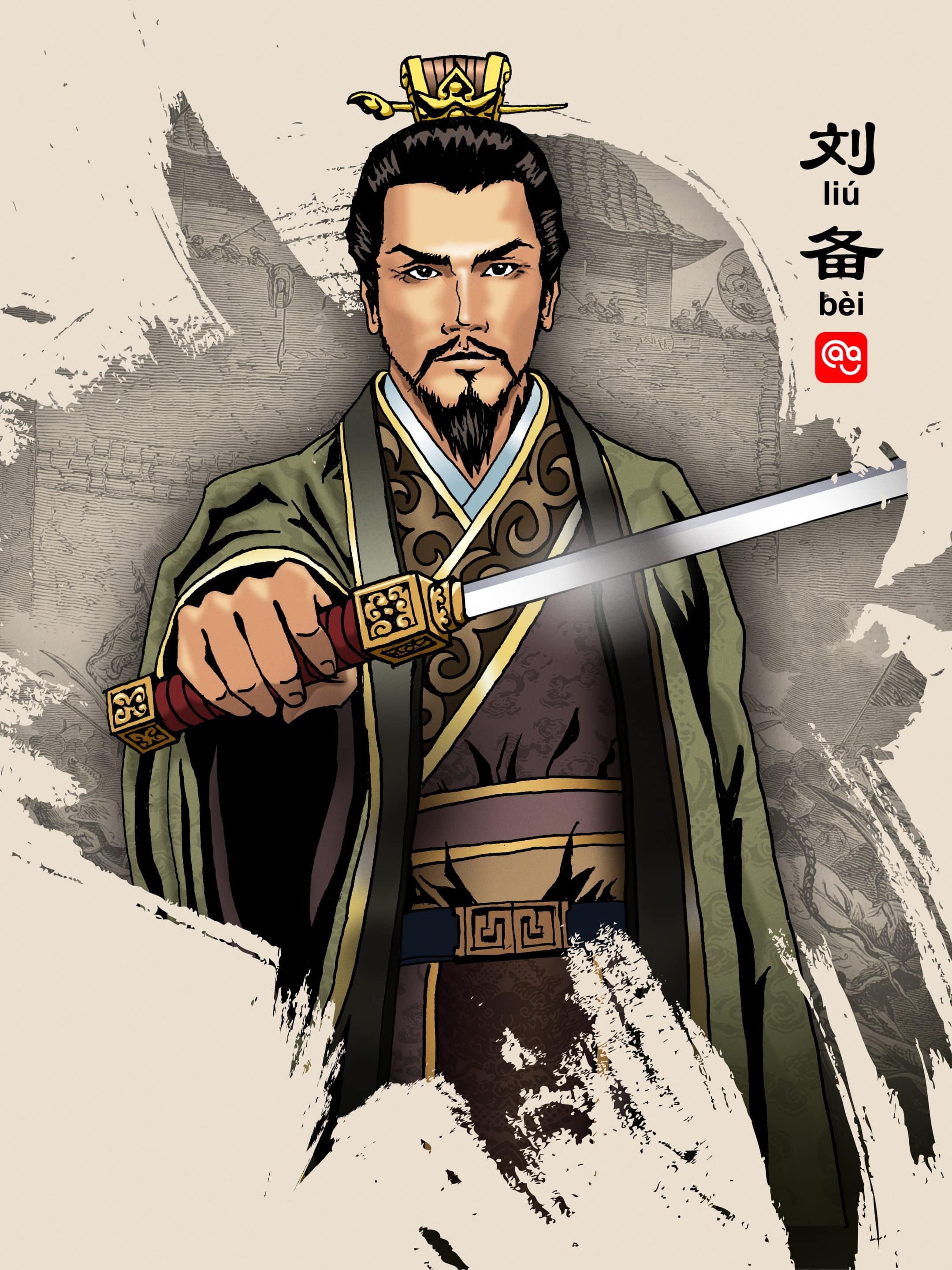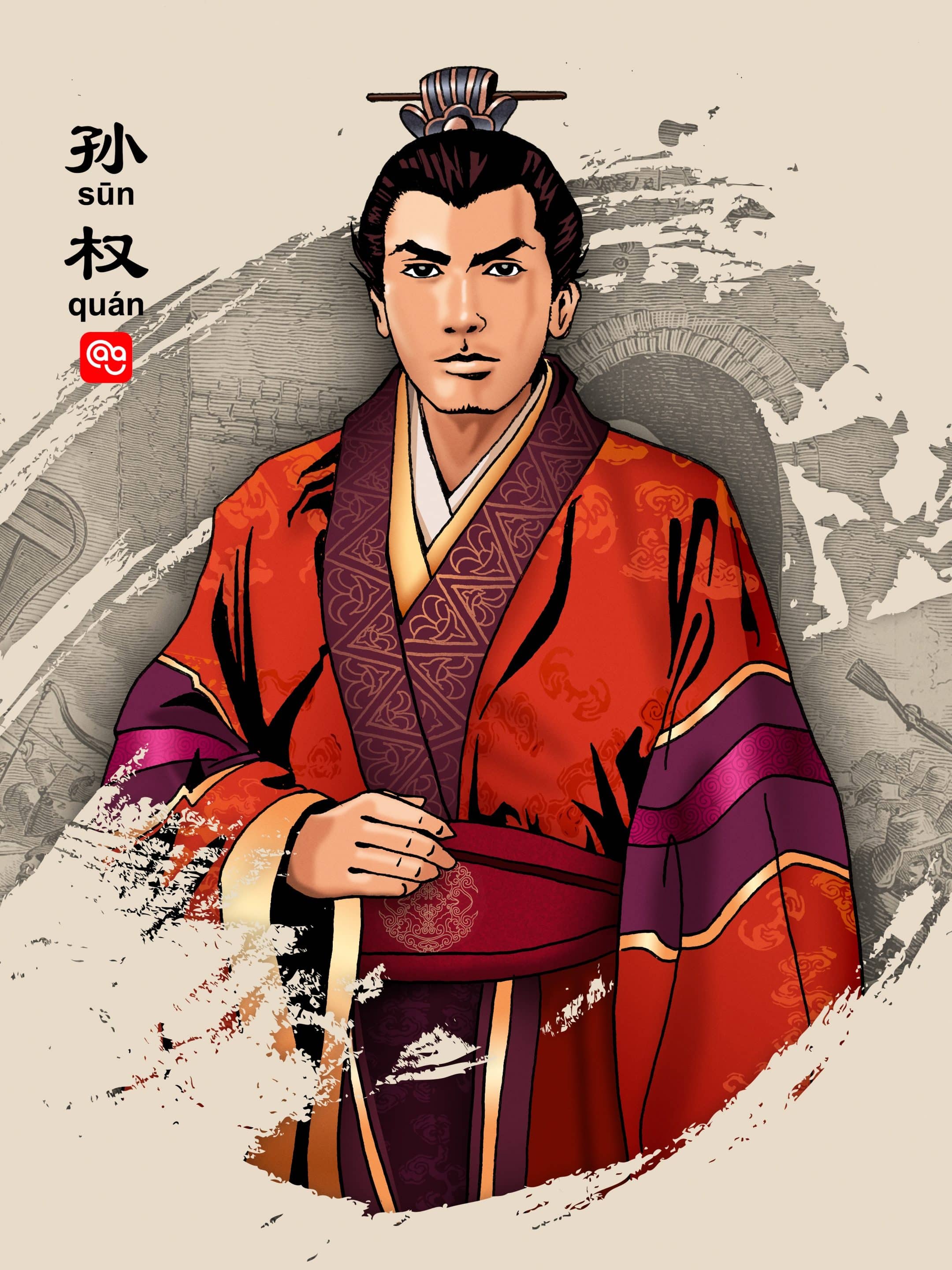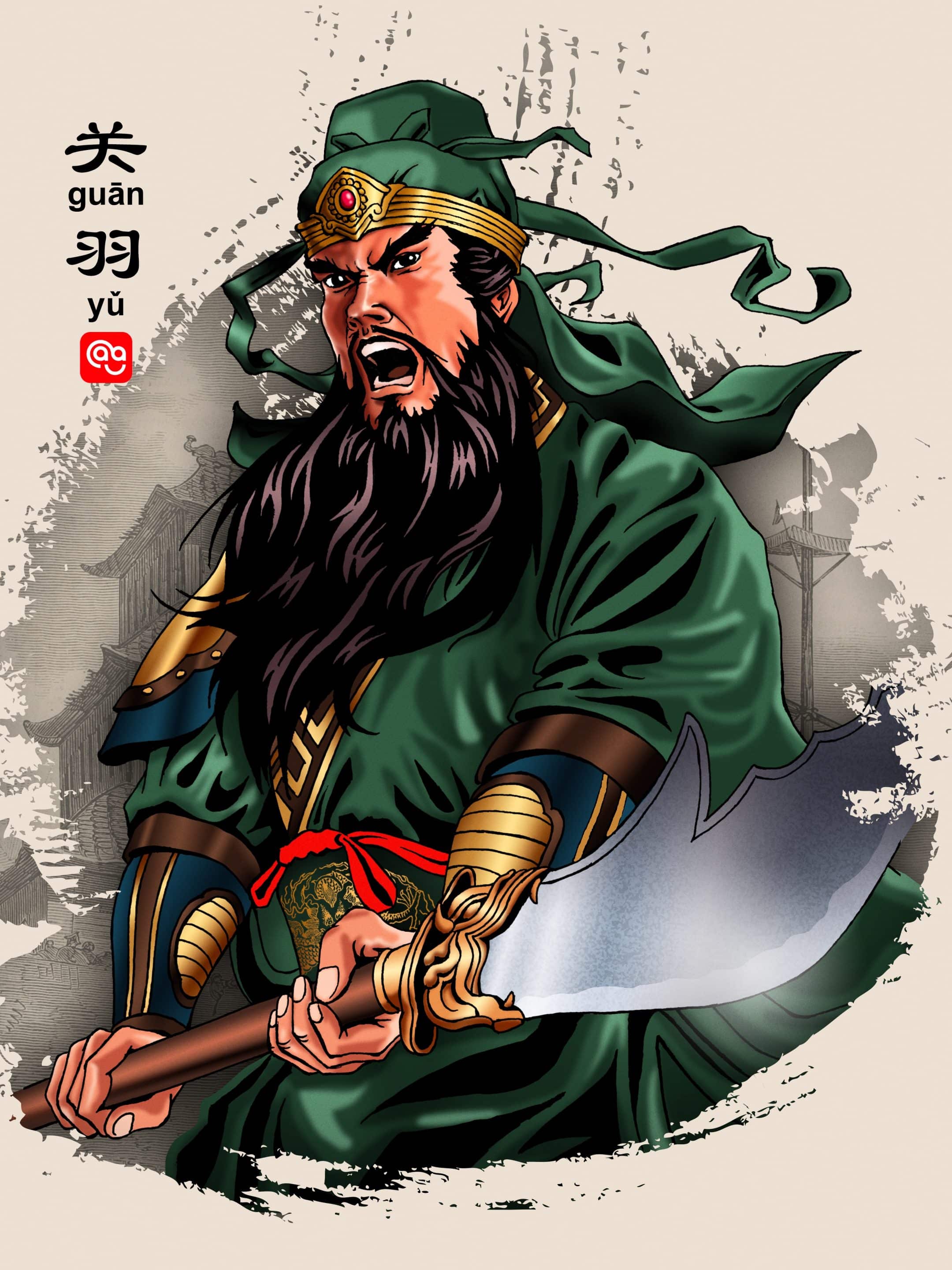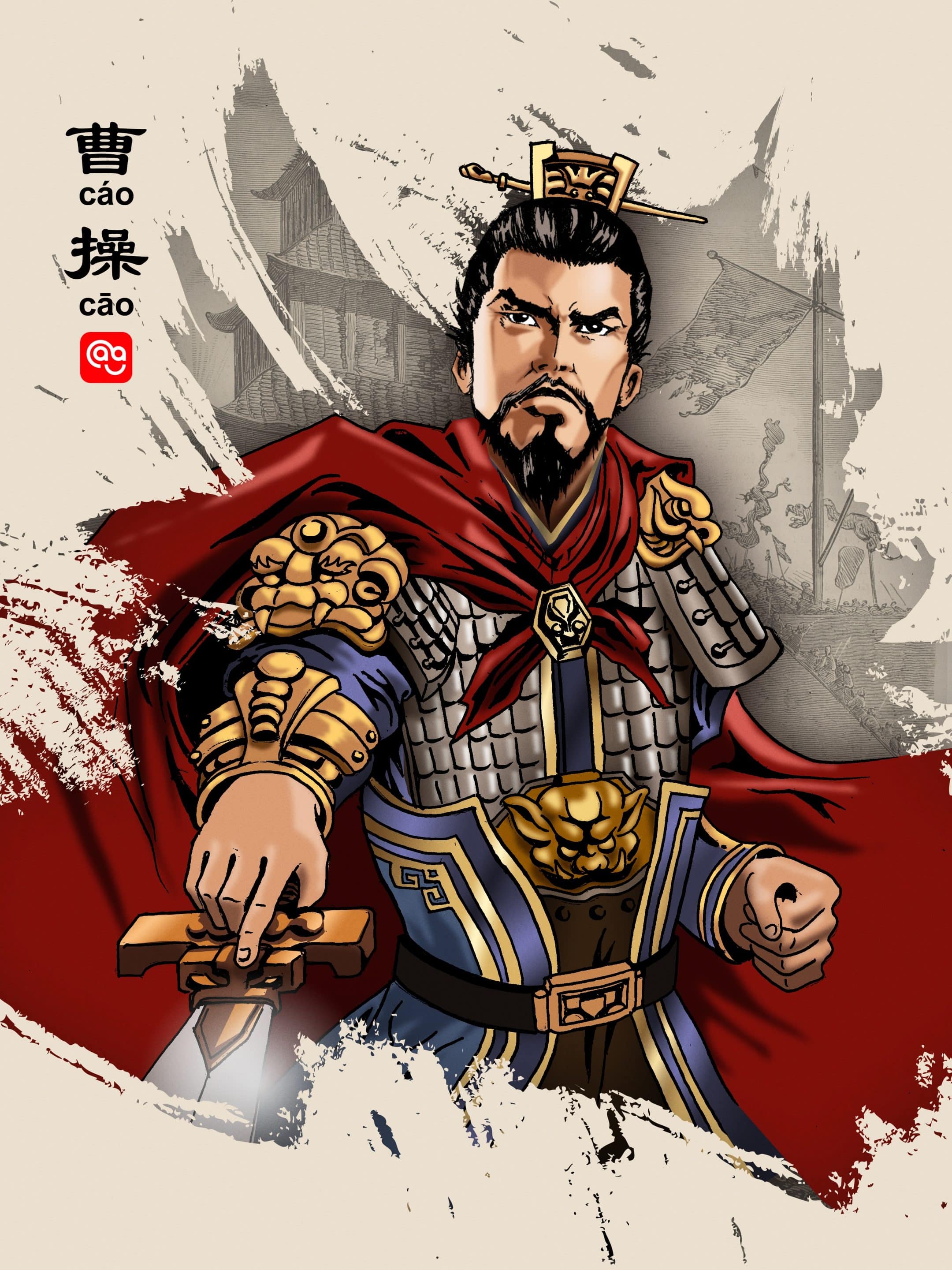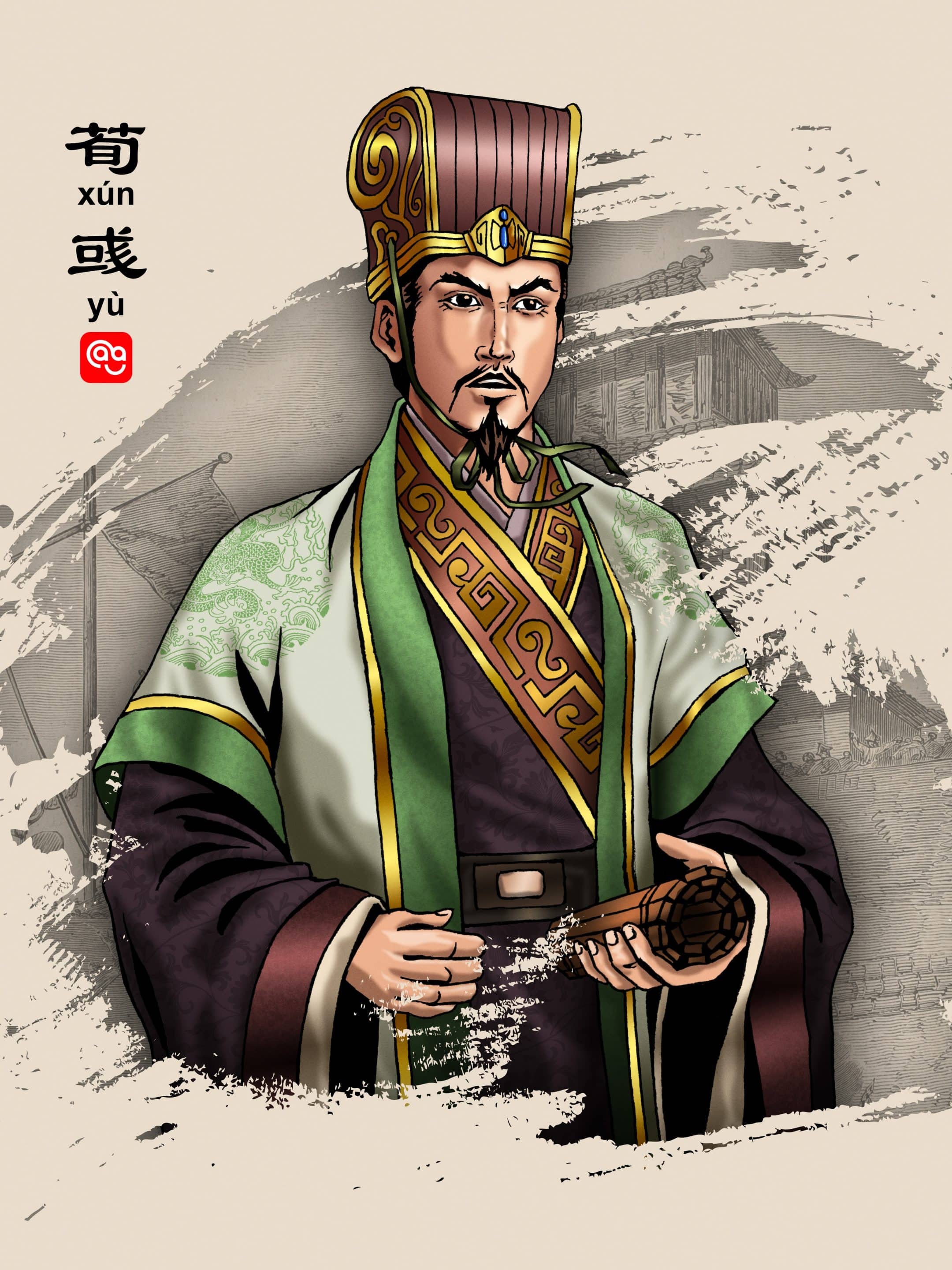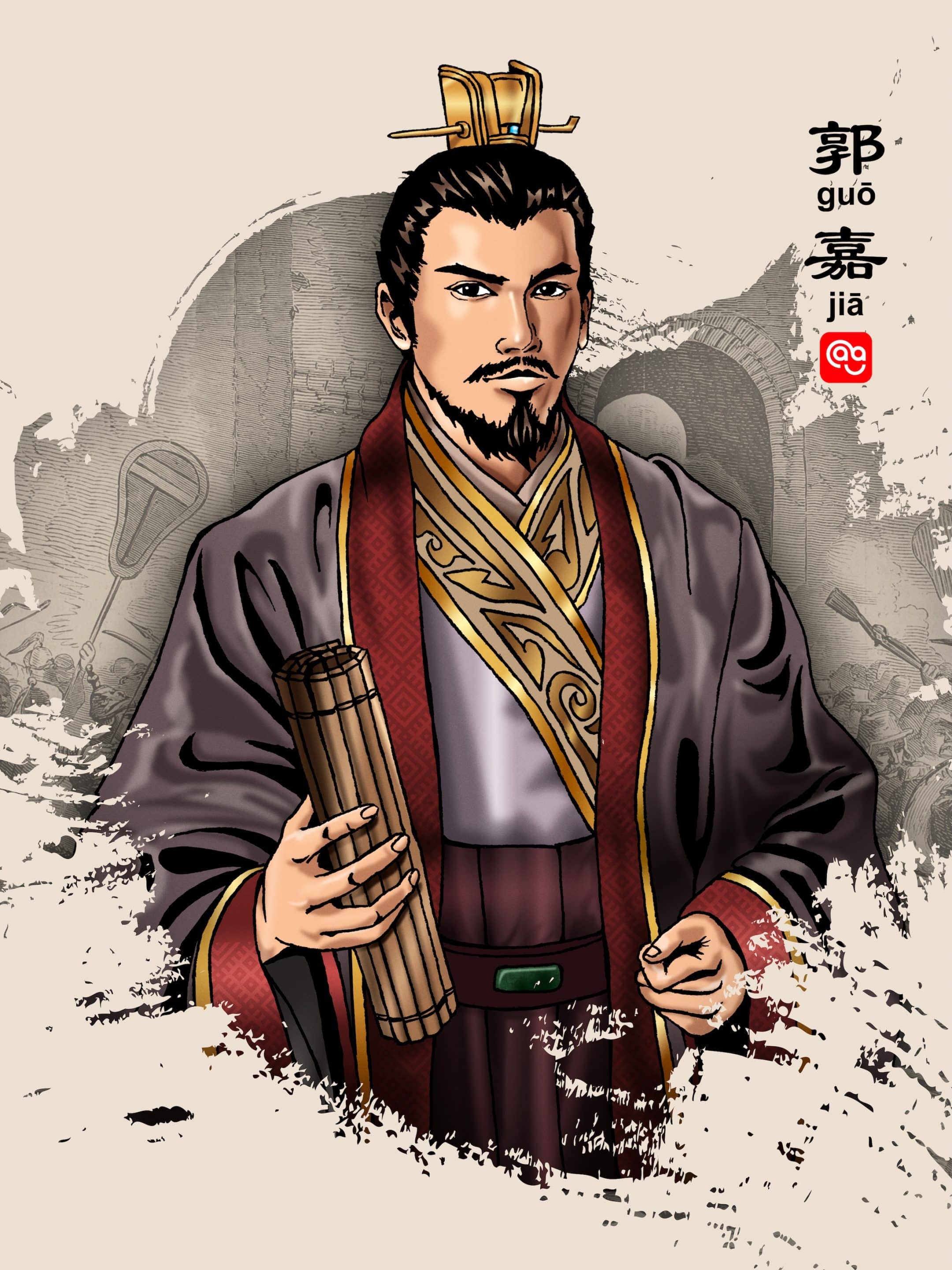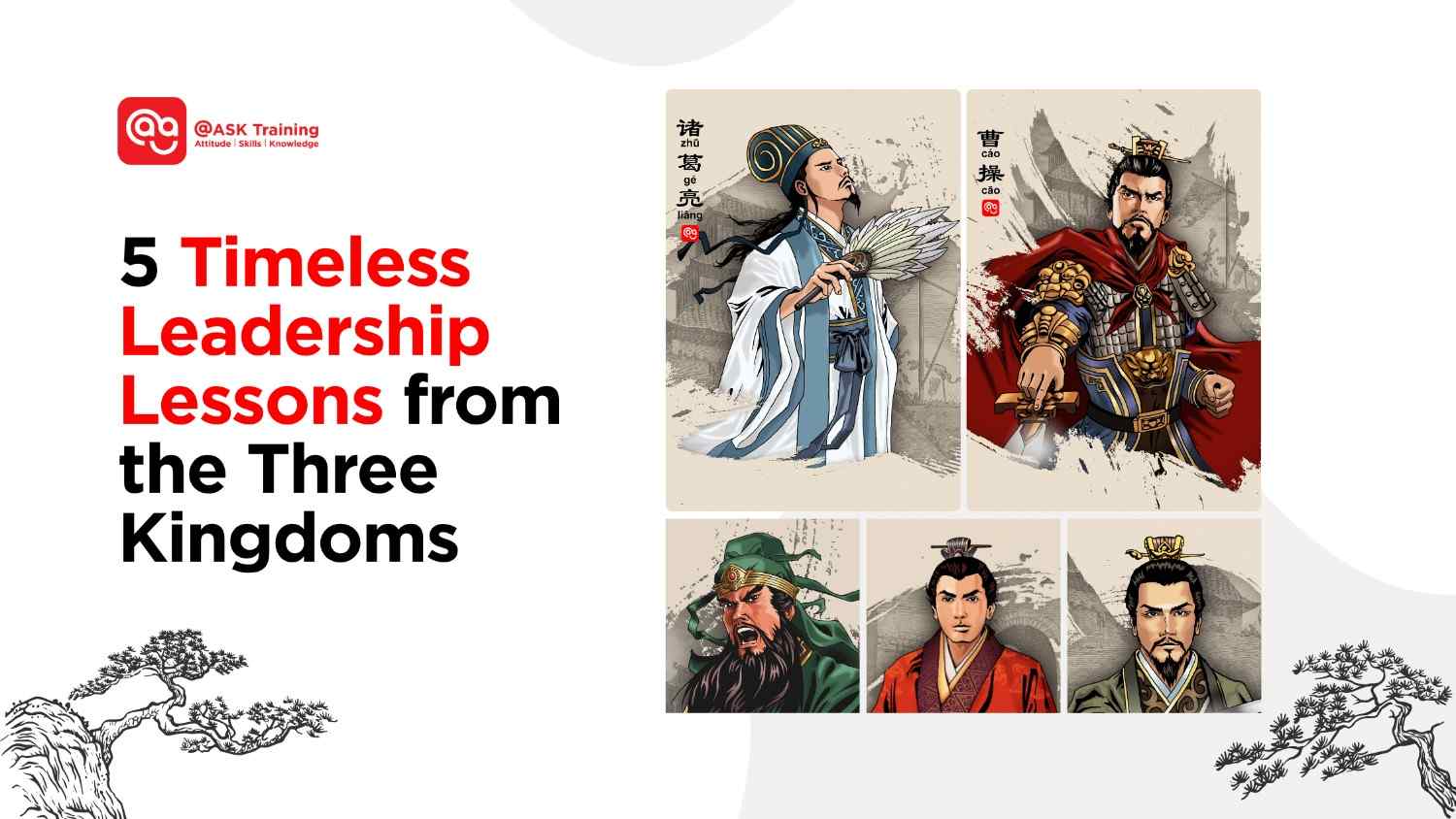
While we’re not facing literal battlefield decisions today, the challenges these ancient rulers faced – strategic dilemmas, talent wars, alliance politics – mirror what modern leaders grapple with daily.
Whether you’re a CEO, manager, or aspiring leader, these ancient Chinese leadership principles can sharpen your decision-making and team-building skills.
In this article, we’ll explore five key leadership lessons from the Three Kingdoms that still resonate today.
Let’s start with the cornerstone of strategic leadership – the ability to see the big picture while staying nimble enough to adjust course.
Lesson 1: Strategic Vision and Adaptability
One of the greatest strategists of the Three Kingdoms, Zhuge Liang, was renowned for his long-term planning and adaptability.
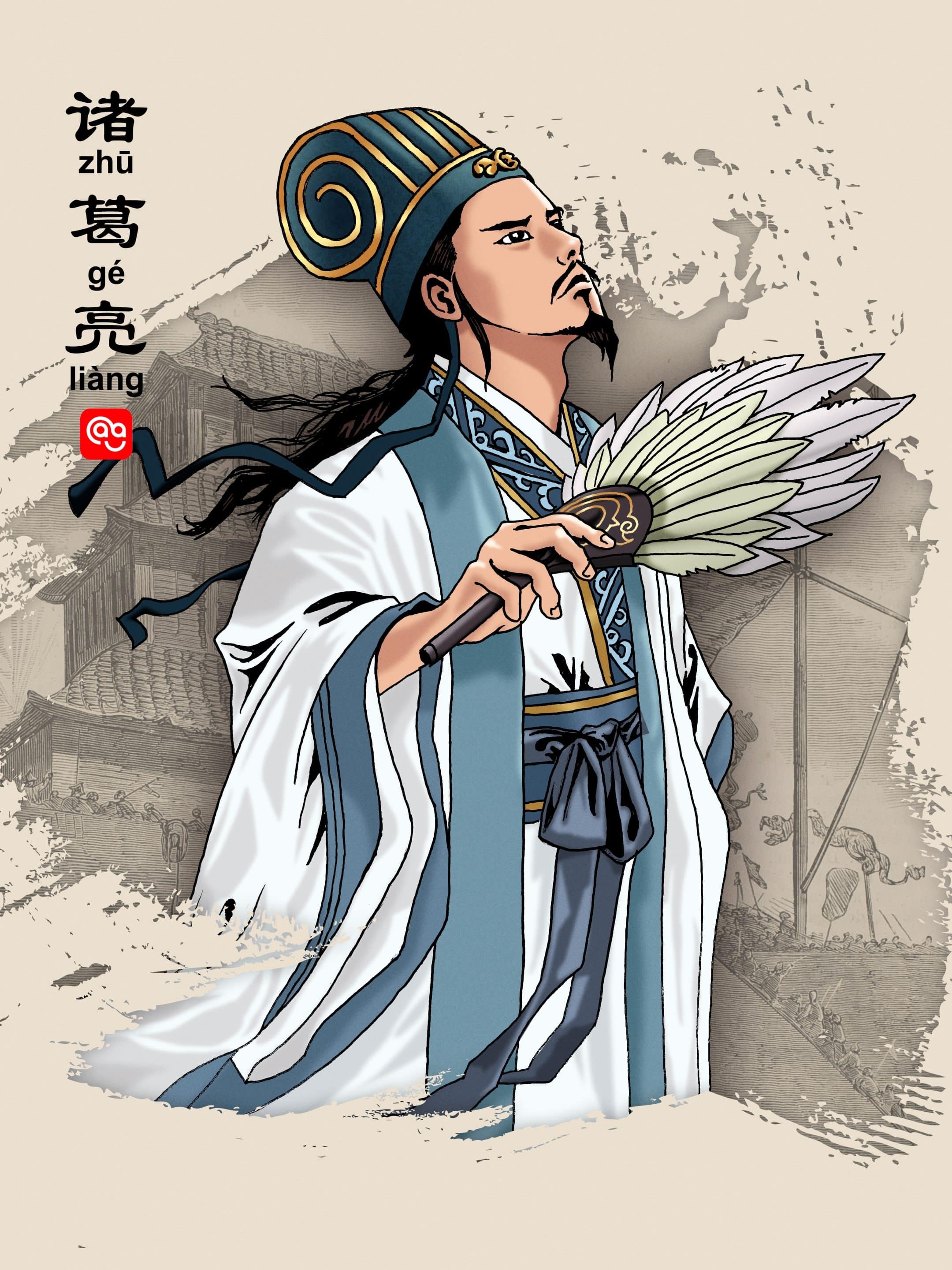
His famous “Longzhong Plan” laid out a vision for Liu Bei’s rise to power, yet he remained flexible when unexpected challenges arose—such as shifting alliances or battlefield setbacks.
Why this matters today:
In our fast-moving business world, rigid 5-year plans gather dust. The sweet spot lies between having clear direction and staying nimble enough to adjust course.
Modern Application
- Set a clear vision (e.g., a 5-year business roadmap) but stay agile in execution.
- Anticipate market shifts (like digital transformation or economic downturns) and adjust strategies accordingly.
- Encourage innovation just as Zhuge Liang used unconventional tactics, leaders today must foster creative problem-solving.
Try This:
- Create a “living strategy document” with core objectives but flexible tactics
- Schedule quarterly “adaptability reviews” to pressure-test assumptions
- Reward team members who spot needed course corrections
“Plans are useless, but planning is indispensable.” – Dwight Eisenhower
Of course, even the best strategy means little without strong relationships to execute it, which brings us to the power of alliances.
Lesson 2: Building and Leveraging Alliances
Liu Bei’s success stemmed from his ability to forge strong alliances. By aligning with Sun Quan at the Battle of Red Cliffs, he defeated a much larger enemy (Cao Cao). His partnerships were built on mutual trust and shared goals—not just short-term gains.
Modern translation:
No organisation succeeds alone today. The right partnerships create win-wins that amplify everyone’s strengths.
Modern Application
- Network strategically and collaborate with industry peers, startups, or government agencies.
- Joint ventures and partnerships can create win-win outcomes.
- Maintain trust, reliability, and transparency to ensure long-term alliances.
Pro Tips:
- Map your ecosystem: Who could help you tackle shared challenges?
- Look beyond obvious partners: Sometimes the best allies come from unexpected places.
- Build relationships before you need them (Liu Bei didn’t wait until battle day to make friends)
Watch out for: Alliances based solely on short-term gain often crumble when tested.
But alliances built solely on convenience often crumble. What sustains them? The often-overlooked foundation of integrity.
Lesson 3: Leading with Integrity and Empathy
Guan Yu, a revered general, was celebrated not just for his strength but for his loyalty and fairness. Leaders like him commanded respect through ethical conduct, not just authority.
Why this resonates now:
In an age of scepticism, authentic leadership cuts through the noise. People follow those they trust.
Modern Application
- Ethical leadership builds trust. Employees and customers value honesty.
- Empathy strengthens teams. Listen to concerns, support work-life balance, and foster inclusivity.
- Lead by example. Integrity in decision-making inspires long-term loyalty.
Actions to take:
- Practise radical transparency in decision-making
- Keep promises, especially when it’s inconvenient
- Have the courage to do what’s right, not just what’s profitable
While character attracts followers, lasting success requires something more – the ability to identify and develop exceptional talent.
Lesson 4: Effective Talent Management
Cao Cao was a master of identifying and empowering talent. He famously said, “I would rather betray the world than let the world betray me.”
Yet he delegated wisely to capable advisors like Xun Yu and Guo Jia.
Modern Application
- Hire for potential, not just experience. Spot and nurture rising stars.
- Delegate strategically. Trust experts in their fields (e.g., tech leads, marketing specialists).
- Invest in training: Upskilling programmes (like SkillsFuture in Singapore) keep teams competitive.
Try these approaches:
- Implement “blind talent challenges” to uncover hidden potential
- Create stretch assignments that push people beyond their comfort zones
- Use your SkillsFuture Credit: Invest in continuous learning with trusted providers like us!
Remember: The best talent wants to work with other top performers – your hiring standards shape your entire culture.
Yet even the most talented teams face setbacks. This is where the final and perhaps most crucial three kingdoms’ leadership quality comes into play.
Lesson 5: Resilience and Perseverance in Adversity
The Three Kingdoms was a time of constant upheaval, yet leaders like Liu Bei endured repeated defeats before finally securing their kingdom. His persistence and ability to rally his followers during tough times were key to his success.
Why this matters for you:
Market crashes, tech disruptions, talent poaching – today’s challenges require similar perseverance.
Modern Application
- Crisis management: Stay calm and pivot strategies when challenges arise (e.g., COVID-19 adaptations).
- Foster resilience in teams: Encourage a growth mindset and learning from failures.
- Long-term perseverance pays off: Even setbacks can lead to stronger comebacks.
Building resilience:
- Normalise “lessons learned” analyses after setbacks.
- Develop contingency plans for critical operations.
- Celebrate comebacks as much as initial successes.
Taken together, these lessons reveal a surprising truth about leadership that transcends time and culture. Before we wrap up, enjoy our bonus section below!
Your Three Kingdoms Leadership Cheat Sheet
Here’s your shortcut to applying 1,800-year-old wisdom to modern leadership challenges!
| If You Face… | Ancient Wisdom | Try This Today | Pro Tip |
| Uncertainty and Change | Zhuge Liang’s Adaptive Strategy | Create a “living” 1-pager of core goals + flexible tactics | Set quarterly “adaptability check-ins” with your team |
| Touch Competition | Liu Bei’s Alliance Play | Identify 1 non-obvious partner for coffee this month | Ask: “What can we achieve together that we can’t alone?” |
| Trust Gaps | Guan Yu’s Integrity Code | Publicly credit a team member’s contribution | Start meetings with “Here’s what we’ve learned since last time” |
| Talent Shortages | Cao Cao’s Merit System | Give a rising star a high-visibility test project | Implement blind skill challenges for promotions |
| Setbacks | Liu Bei’s Comeback Mindset | Start a “Lessons Learned” log after failures | Reward smart risks, even when outcomes miss the mark |
Now that you’ve got these battle-tested strategies at your fingertips, let’s bring it all together.
Wrapping Up
The Three Kingdoms era teaches us that great leadership transcends time. Whether it’s strategic foresight, strong alliances, ethical conduct, talent management, or resilience, these leadership principles remain vital in Singapore’s competitive business landscape.
As you reflect on your leadership journey, ask yourself:
- How can I adapt my strategy like Zhuge Liang?
- Am I building alliances that add long-term value?
- Does my team trust me to lead with integrity?
Leadership isn’t just about power—it’s about wisdom, adaptability, and people. By applying these timeless leadership lessons, you can navigate today’s challenges with the same brilliance as the legends of the Three Kingdoms.
Great leaders aren’t born—they learn, adapt, and inspire. Which of these lessons will you apply first?
Ready to Transform How You Lead?
As the saying goes “The wise leader adapts like water – will you seize your moment to transform?“
Transform how you lead by blending 1,800 years of proven wisdom with today’s toughest business challenges through @ASK Training’s specialised Leadership and Management courses.
Choose Your Leadership Journey:
- Three Kingdoms’ Leaders & Leadership (Cao Cao Chapter): Master decisive, results-driven leadership.
- Applying Three Kingdom Strategies in Your Organisation: Turn ancient tactics into competitive advantage.
- Three Kingdoms’ Leadership in Today’s Context: Solve modern problems with timeless wisdom.
Enrol with us today! Your next strategic move starts here!
Related Courses
- Three Kingdoms’ Leaders & Leadership (Cao Cao Chapter)
- Applying Three Kingdom Strategies in Your Organisation
- Three Kingdoms’ Leadership in Today’s Context
◆◆◆

